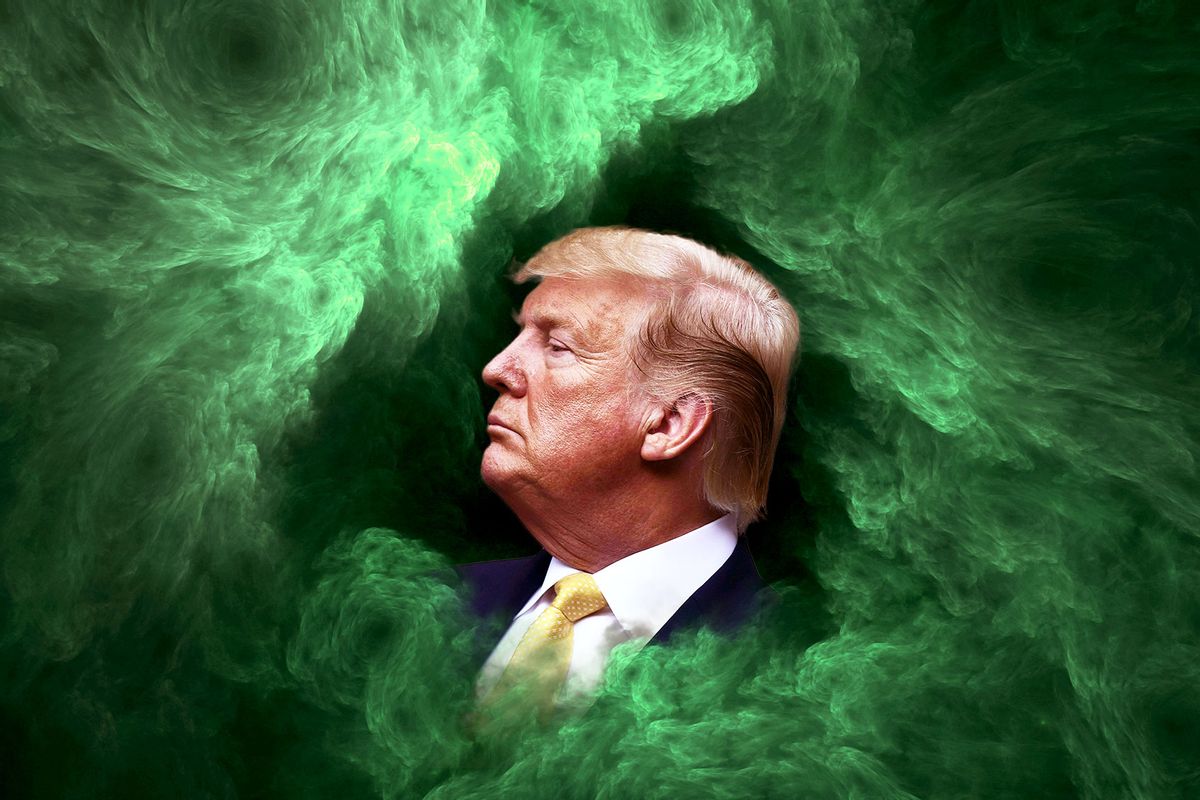Legal experts pushed back on claims that the Manhattan district attorney case against former President Donald Trump is weak — particularly since the details of the indictment are yet to be released.
A grand jury on Thursday voted to indict Trump on more than 30 counts related to hush money payments made to adult film star Stormy Daniels during the 2016 election," according to NBC News. Trump is expected to be arraigned in court early next week, his defense attorney Joe Tacopina told the network.
The indictment itself remains sealed for now, but this is the first time that a criminal case has been brought against a former U.S. president – one who is the leading contender seeking the 2024 Republican presidential nomination.
"We have never before had a president who has allegedly been on such a crime spree, both preceding his office, during his time in office, and probably after his time, so we have not confronted the necessity of indicting a former president," said Catherine Ross, a constitutional law professor at George Washington University.
Now, the question remains whether we should "behave with extreme deference and caution," allowing Trump to remain above other citizens, or be a "nation of laws," as the founders intended, Ross pointed out.
"We have chosen to be a nation of laws – something that Trump has consistently challenged," she added. "It is not a cause for jubilation, but a time for reflection, and for hoping that our institutions will prove adequate to the moment."
While Trump has the same rights as any other criminal defendant, Ross added, she hopes the judge overseeing the trial does not allow him to play "the kind of games that he has historically played in courtrooms" to delay legal proceedings while he runs for president.
Thursday's indictment follows a years-long investigation into Trump's former lawyer Michael Cohen, who pleaded guilty to campaign finance charges after paying $130,000 to Daniels to keep quiet about her alleged affair with the former president.
Cohen transferred the money to Daniels a few weeks prior to the election and later testified that Trump reimbursed him for the payment. The Trump Organization has maintained that the reimbursement payments were for legal fees.
These payments may have actually altered the outcome of the 2016 election, suggested Norman Eisen, a senior fellow at the Brookings Institution and CNN legal analyst, during a Friday press call with top legal experts hosted by the nonprofit watchdog group Democracy 21.
"I think a persuasive and powerful theory based on the evidence we have is that these hush money payments were covert campaign finance benefits, because in the wake of the Access Hollywood tape, another sex scandal could have been devastating to the Trump campaign in that regard," Eisen said.
While the indictment remains to be seen, the evidence and corroboration from witnesses like Cohen and National Enquirer publisher David Pecker, make this a "very strong case," he added.
In New York, falsifying business records is usually a misdemeanor, but can be elevated to a felony if it was done to cover up another crime.
"There are those who continue to talk about the New York case as if it was about a porn star, sex and hush money. That is not the crux of the criminal matter," Ross said. "There was nothing illegal about the payment. It's the cover-up and it's the cheating on business records and presumably, using business records to cover up other crimes, which made it a felony."
Want a daily wrap-up of all the news and commentary Salon has to offer? Subscribe to our morning newsletter, Crash Course.
As the legal process moves forward, Trump may play this out in the public arena painting himself as a victim, pointed out William "Widge" Devaney, former assistant U.S. attorney in the District of New Jersey.
"I would expect a lot of histrionics from the Trump camp and that the district attorney will just kind of keep moving forward," he said.
While the process would function the same as it would for anyone charged with a crime, there may be some differences, Devaney added. Trump is unlikely to be perp walked and will likely be released on his own recognizance while awaiting trial.
Trump may also use this opportunity to solidify his base politically suggesting he did nothing wrong and describing the investigation as a "witch hunt", Devaney said.
Defendants who have access to the press routinely try to influence what the public thinks and in an effort to paint himself in a positive light, Trump will be aided by most Republicans, Ross said.
Former federal prosecutor Joyce White Vance echoed similar sentiments during Friday's press call.
"The next four days are a vacuum that favor the former president because this is what he likes to do," Vance said. "He likes to step into an information vacuum, provide information that favors him and sway public opinion before the true facts get out."
Regardless of his efforts to persuade public opinion, prosecutors will try their case in the courtroom, Vance added.
"The important thing I think for us to all understand is less what he's saying and more what he's doing," she said. "He's not trying to let the legal system deal with the issues that the Manhattan DA 's office is raising. He's trying to win over public opinion and use that to corrupt the criminal justice system."
Trump is also facing multiple criminal investigations, including a DOJ probe into his handling of classified documents and a Georgia investigation into his efforts to overturn the results of the 2020 presidential election.
As those investigations move forward, there could be potential for the other cases to move at a faster pace than the Manhattan DA's office, Devaney said.
"We also need to look at what's coming down the road," he said, pointing to potential indictments in Fulton County and D.C.
Read more
about Trump's indictment



Shares